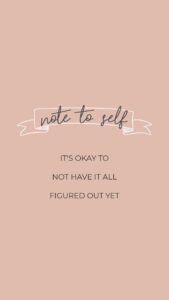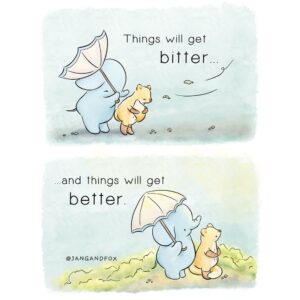
Image Courtesy: cufflovesm.live
How the hell do you know??
Each thread of the intricate fabric of human life tells a story wrapped in irrepressible joy, heartache and pain, and subtle color gaps. Regrettably, when confronted with someone else’s difficulties, the default retort is the dismissive “it could get worse.” This commonplace reaction, however, serves as a stark reminder that such words not only trivialize the profound emotional intricacies but also reduce the rich complexity of a person’s challenges, to a mere afterthought. This is a poignant appeal to those who use this phrase unthinkingly – it is a plea to recognize that beneath every struggle lies the real complexity of human experience. Urging you to take a step back and ensure that you acknowledge and understand the emotions, before commenting.
The Pitfalls of Comparison
“It could be worse” is not merely a benign statement; it carries the weight of invalidation. This phrase serves as a barrier to genuine understanding and can hinder the pursuit of necessary remedy. At its core, it’s a nonsensical attempt to quantify and compare experiences that are inherently individual and incomparable.
A Call for Acknowledgment and Validation
Instead of diminishing someone’s struggle, let us champion acknowledgment, understanding, and validation. When someone is grappling with a tough time, the first step is to create a non-judgmental space for them to share their thoughts and feelings. Listening, without imposing judgment, lays the foundation for genuine connection and support.
The Power of Validation
In a world that often rushes to judgment, validation becomes a potent antidote. We all yearn for recognition and understanding, especially when facing adversity. By validating the way someone feels, we extend empathy and compassion, acknowledging the validity of their experiences.
Honesty as a Bridge to Understanding
Navigating the complexities of ill health or disability or even just loneliness, can be challenging, both for individuals experiencing it and for their loved ones. When you find yourself at a loss for words, be honest about it. It’s better to express uncertainty than to offer platitudes. Please do not say ‘I understand’ without truly understanding. This honesty paves the way for a deeper understanding of the situation and opens the door for sincere support in the future.
Identifying Distress and Offering Support
In times of distress, it’s essential to identify worries or uncertainties that may be exacerbating the situation. Limitations and weaknesses are not easy to accept, and acknowledging these challenges can be a source of great support. Engage in open conversations about specific problems or barriers and explore potential solutions together.
Supporting Hopes and Dreams
Each person’s journey is unique, and assumptions about what might be important to them can be misleading. Instead of imposing preconceived notions, take the time to discover the hopes and aims the person has with regard to their situation. By aligning support with their individual aspirations, we foster a more empathetic connection.
From ‘It Could Be Worse’ to ‘How Could It Be Better’
The phrase ‘it could be worse’ seldom offers comfort or positivity. Instead, it is NEGATIVE POSITIVITY – so let’s shift the narrative toward improvement. In the future, when faced with the opportunity to console, refrain from the dismissive ‘it could be worse.’ Instead, ask ‘how could it be better?’ . This subtle shift creates a gateway to improvement, encouraging a collaborative exploration of possibilities and fostering a more positive and supportive environment. After all, in the journey of empathy, true comfort lies not in comparisons but in the shared pursuit of understanding and improvement.

